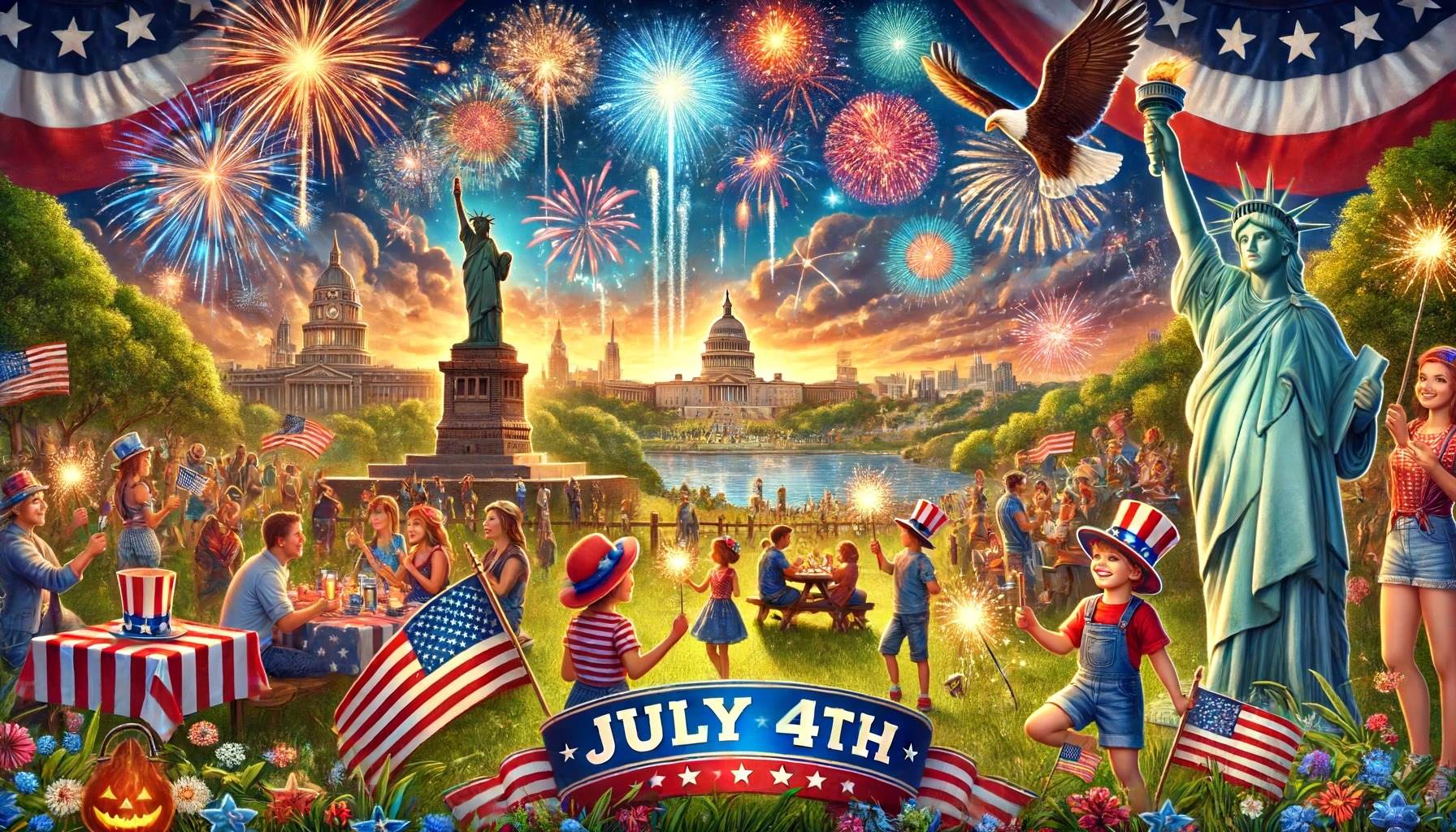
Why is July 4th celebrated in the United States? July 4th, also known as Independence Day, marks the birth of the United States as an independent nation. On this day in 1776, the Continental Congress adopted the Declaration of Independence, declaring freedom from British rule. This historic event is celebrated with fireworks, parades, barbecues, and various patriotic displays. It's a day when Americans come together to honor their history, reflect on their freedoms, and enjoy time with family and friends. From the ringing of the Liberty Bell to the iconic fireworks over the National Mall, July 4th is a symbol of American pride and unity.
Key Takeaways:
- The 4th of July is a big deal because it's when the United States became its own country. People celebrate with fireworks, parades, and barbecues to honor this special day.
- July 4th is also a day to remember important people and symbols, like Thomas Jefferson and the American flag. Modern celebrations include big fireworks shows and fun events like hot dog eating contests.
The Birth of Independence Day
July 4th, also known as Independence Day, is a significant date in American history. It marks the birth of the United States as an independent nation. Here are some fascinating facts about this historic day.
- The Declaration of Independence was adopted on July 4, 1776.
- Thomas Jefferson, John Adams, and Benjamin Franklin all had a hand in drafting the Declaration.
- The Continental Congress actually voted for independence on July 2, 1776.
- John Adams believed July 2nd would be celebrated as Independence Day.
- The Declaration of Independence was signed by 56 delegates from 13 colonies.
Celebrations and Traditions
Independence Day is celebrated with various traditions that have evolved over the years. These customs bring people together to honor the nation's history and freedom.
- Fireworks have been a part of July 4th celebrations since 1777.
- The first Independence Day celebration took place in Philadelphia.
- Parades are a common tradition, with the oldest continuous parade held in Bristol, Rhode Island.
- Barbecues and picnics are popular ways to celebrate with family and friends.
- The Liberty Bell in Philadelphia is tapped 13 times every July 4th in honor of the original 13 colonies.
Historical Figures and Events
Many historical figures and events are closely tied to July 4th. These individuals and moments have left a lasting impact on the nation's history.
- Both Thomas Jefferson and John Adams died on July 4, 1826.
- James Monroe, the fifth president, also died on July 4, 1831.
- Calvin Coolidge, the 30th president, was born on July 4, 1872.
- The first public reading of the Declaration of Independence was on July 8, 1776.
- The Star-Spangled Banner became the national anthem in 1931, often sung during July 4th events.
Symbols of Independence
Various symbols represent the spirit of Independence Day. These icons remind people of the nation's journey to freedom and the values it upholds.
- The American flag, also known as the Stars and Stripes, is a prominent symbol.
- The bald eagle, chosen as the national bird in 1782, represents freedom and strength.
- The Statue of Liberty, a gift from France, symbolizes freedom and democracy.
- The Liberty Bell, with its famous crack, is an enduring symbol of American independence.
- Uncle Sam, a personification of the U.S. government, became popular during the War of 1812.
Modern-Day Celebrations
Today, Independence Day is celebrated with a mix of traditional and modern activities. These events reflect the nation's diverse culture and love for freedom.
- Major cities like New York and Washington, D.C., host large fireworks displays.
- The Nathan's Hot Dog Eating Contest is held annually on July 4th in Coney Island.
- Many people wear red, white, and blue clothing to show their patriotism.
- Concerts and festivals are common, featuring performances by popular artists and bands.
The Heart of July 4th
July 4th isn't just about fireworks and barbecues. It's a day that marks the birth of a nation, celebrating freedom, independence, and unity. From the signing of the Declaration of Independence to the traditions we cherish today, this day is steeped in history and significance. The facts we've shared highlight the depth and richness of this holiday. Whether it's learning about the origins of the fireworks or understanding the symbolism behind the American flag, each fact adds a layer of appreciation. Next time you watch the fireworks light up the sky, remember the journey and sacrifices that made this celebration possible. Embrace the spirit of July 4th, and let it remind you of the values that bind us together as a nation. Happy Independence Day!
Frequently Asked Questions
Was this page helpful?
Our commitment to delivering trustworthy and engaging content is at the heart of what we do. Each fact on our site is contributed by real users like you, bringing a wealth of diverse insights and information. To ensure the highest standards of accuracy and reliability, our dedicated editors meticulously review each submission. This process guarantees that the facts we share are not only fascinating but also credible. Trust in our commitment to quality and authenticity as you explore and learn with us.


